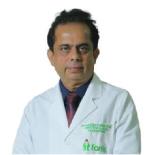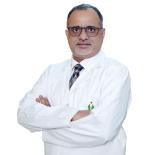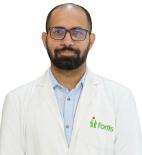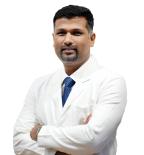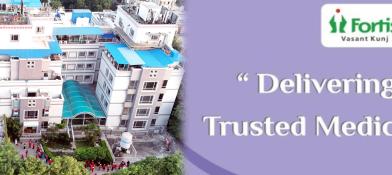About Neuro and Spine Surgery
Introduction
Neural and spine surgery is a specialisation in modern medicine focusing on diagnosing and treating ailments related to the brain, spinal cord, and peripheral nerves. Neural and spine surgery mainly deals with restoration of functionality, pain reduction, and improving quality of life for patients suffering from spinal and neurologic diseases. It incorporates a wide range of procedures, from treating serious traumatic injuries to degenerative diseases and congenital abnormalities, tumours, and vascular disorders. Healthcare professionals in this domain use modern techniques and the latest technology to treat conditions affecting the central and peripheral nervous systems.
What is neuro and spine surgery?
Neurosurgery is a medical speciality primarily focusing on the diagnosis, surgical treatment, and management of disorders related to the nervous system – brain, spinal cord, and peripheral nerves.
Spine surgeries treat the disorders of the spine, comprising the vertebral bones, intervertebral discs, spinal cord, nerves, and associated tissues. These surgeries are done for pain relief, mobility restoration, and to address deformities or injuries of the spine.
Which diseases are treated under neuro and spine surgery?
Neuro and spine surgery addresses a wide variety of neurological and spinal conditions. Some of the most commonly treated diseases include:
- Brain disorders:
- Benign as well as malignant conditions influence brain function
- Hydrocephalus – Overproduction and accumulation of cerebrospinal fluid in the brain
- Aneurysm – Ballooning out of the blood vessels, which causes bleeding in life-threatening circumstances
- Epilepsy: A neuro condition with symptoms including recurring seizures
- Spine disorders:
- Degenerative disc disease is a condition wherein the intervertebral disc deteriorates progressively or with age.
- Herniated disc: This condition is caused by a spinal disc that protrudes out from the normal space. This might cause compression of the nerve, and, as a result, it could lead to pain, numbness, and even weakness. In this particular condition, a discectomy, which is the removal of the bulging part, is performed.
- Spinal stenosis: In this disorder, the spinal canal becomes narrowed, which might lead to the compression of either the spinal cord or the nerves thereby causing pain or other neurological symptoms. The surgical intervention in this case would essentially be laminectomy or foraminotomy to relieve symptomatology.
- Scoliosis and other spinal deformities: Scoliosis or kyphosis are the abnormal curvatures of the spine that can be surgically corrected by spinal fusion or instrumentation to realign and stabilise the spine.
- Spinal fractures and injuries: Trauma to the spine resulting from accidents, falls, or impacts can cause spinal fractures. In severe fractures, surgery is required to stabilise the spine and prevent further spinal injury.
- Spinal tumours: Tumours of the vertebrae, spinal cord, or nerves in the spine might be benign or malignant and might require surgery to remove the tumorous growth and stabilise the spine.
- Peripheral nerve disorders:
- Peripheral neuropathy: This is caused by damage to the peripheral nerves, causing weakness, numbness, or pain.
- Carpal tunnel syndrome: This is caused by an increased pressure on the median nerve in the wrist, causing numbness and pain.
- Trauma-related injuries:
- Traumatic brain injury: Traumatic injuries to the brain can occur by blow or jolt to the head, impacting the brain function.
- Spinal cord injuries: This can be a result of accidents or falls leading to varying ranges of paralysis or loss of function.
Signs and symptoms of neuro and spine diseases
Signs and symptoms of neurological diseases
- Headache:
- Persistent and severe headaches, like migraine, tension headaches, and cluster headaches
- Sudden and intense headaches, which could be indicative of brain haemorrhage or aneurysm
- Headaches, which might be accompanied by nausea, vomiting, or visual disturbances
- Seizures:
- Sudden or uncontrollable electrical activity in the brain can lead to convulsions, loss of consciousness, or abnormal sensations
- Epilepsy, brain tumours, or head injuries cause seizures
- Memory loss or cognitive impairment:
- This includes problems in remembering recent events or familiar information
- It can also result in confusion and difficulties with problem-solving or decision-making (e.g. conditions such as Alzheimer’s Disease)
- Weakness of paralysis:
- Muscle weakness is characteristically unilateral
- Acute presentations of full paralysis can be found in certain muscles of the limbs after stroke, spinal cord injuries, or brain tumours
- Impairment of movement or loss of control over particular parts of the body
- Sensory changes:
- A feeling of numbness or tingling in the arms, legs, or faces
- Loss of sensation in some parts of the brain, which could be due to nerve compression, brain injury, or injury to the spinal cord
- Photosensitivity, sound sensitivity, or other sensory stimuli
- Speech and language problems:
- Slurred speech or inability to form words, which can be seen after a stroke
- Inability to read or write
- Loss of coordination and balance
Signs and symptoms of spinal diseases:
- Back pain: Chronic, localised pain in the lower back that may or may not radiate to other areas
- Nerve pain (Radiculopathy): Sharp shooting pain radiating down to arms or legs
- Muscle weakness or atrophy: Muscular atrophy can be a sign of lack of stimulation by nerves
- Scoliosis or spinal deformity: Abnormal curvature of the spine, uneven shoulders, hips or waistline, pain or stiffness, or discomfort due to spine misalignment
- Numbness or tingling in extremities: Paresthesia is a symptom noticed in the hands, feet, arms, or legs, which could be an indication of nerve compression in the spine or peripheral neuropathy
- Trouble walking or standing
- Fractures in the spine
- Loss of reflexes: It might indicate cord damage, disc hernia, and others
Techniques used by a neuro and spine surgeon
These interventions range from basic traditional open surgeries to very minimally invasive approaches. Some of the major techniques applied by neuro and spine surgeons are:
- Minimally invasive surgery (MIS)
- Microsurgery
- Robotic-assisted surgery
- Neuro-navigated
- Stereotactic radiosurgery (SRS)
Treatments available for neuro and spine diseases
Non-surgical treatment options (conservative management):
Most patients enter the surgical path with some conservative treatments that include:
- Medications:
- Pain medicines: NSAIDs and opioids
- Muscle relaxants for muscle spasms
- Anti-seizure drugs for nerve pain or epilepsy
- Corticosteroids to reduce inflammation
- Neurological medicines for Parkinson’s disease or epilepsy
- Physical therapy:
- Exercises to strengthen and improve flexibility and range of motion in order to relieve back and neck pain or as part of recovery from an injury
- Injections:
- Epidural steroid injections for inflammation and pain reduction in herniated disc or spinal stenosis
- Nerve block, blocking the pain of one nerve or a group of nerves for a temporary period
- Cognitive behavioural therapy (CBT):
- Utilised for chronic pain management and neurologic disorders
Treatment options in neurosurgery:
- Surgical removal of tumour
- Objective: Resection of brain or spinal cord tumours (malignant or benign).
- Procedure: The surgeon opens up a window in the skull (craniotomy) and reaches the tumour with microsurgery instruments to remove the tumour.
- Outcome: This may relieve pressure and reduce symptoms such as fits, improving neurological functions.
- Endovascular surgery (coiling or stenting):
- Indication: It is indicated in the cases of brain aneurysms, stroke, and AVM.
- Procedure: It is minimally invasive. A catheter is placed in an artery, usually in the groin, and steered to the brain, where coils or stents are used to occlude aneurysms or restore blood flow.
- Outcome: The probability of rupturing of aneurysms is minimised, and blood flow is restored in the stroke patient.
- Deep brain stimulation (DBS):
- It is employed for movement disorders like Parkinson’s disease, dystonia, and essential tremors.
- Procedure: Electrodes are placed in specific parts of the brain that send electrical impulses to control abnormal brain activity.
- Outcomes: It relieves movement disorders and improves the quality of life.
Treatment options in spine surgery:
- Discectomy/Microdiscectomy:
- Objective: This procedure eliminates the pain that develops from a herniated disc by taking out part of the disc, causing pressure on a nerve.
- Process: In a discectomy, the surgeon simply removes that herniated portion of the disc. With a microdiscectomy, a microscope is used to do more precise surgery; the cuts are smaller.
- Result: It relieves pain, restores mobility, and relieves nerve compression.
- Spinal fusion:
- Goal: It is employed to stabilise the spine under conditions such as degenerative disc disease, spinal fractures, scoliosis, or spinal instability.
- Process: Two or more vertebrae are permanently fused with bone grafts and metal hardware, such as rods and screws.
- Results: It gives stability to the spine and results in pain relief. But spinal flexibility might be decreased.
- Kyphoplasty/Vertebroplasty:
- Purpose: This is a treatment for vertebral compression fractures, primarily osteoporosis.
- Process: In kyphoplasty, the balloon is used to inflate the vertebra and restore its original height. Then, bone cement is injected. Vertebroplasty involves direct injection of bone cement into the fractured vertebra.
- Results: It relieves pain, stabilises the fracture, and restores the original spine alignment.
- Robotic-assisted surgery:
- A robotic system is used for complex spinal fusions or deformity corrections to achieve less tissue damage with optimum outcomes.
Post-surgical care and rehabilitation comprises:
- Strength and mobility exercises
- Pain management, wherein the patient either follows a doctor’s prescription of medicines or gets nerve blocks
- Occupational therapy to regain most of the daily and professional activities
- Cognitive rehabilitation for neuro in order to regain and recover the lost functions in the brain
Benefits of early interventions
Early intervention in neurological and spinal diseases can make the difference between full recovery or recovery with minimal deficit and the possible risks of complications from these diseases in the later stages. The most important benefits in this regard include:
- Reduced risk of permanent damage: Improvement and management of conditions such as nerve compression and abnormal spinal deformities prevent permanent damage to the nervous system.
- More rapid recovery: Early diagnosis and treatment primarily cut short the time for recovery and improved health status.
- Improved quality of life: Early treatment would ease the symptoms, such as chronic pain, and this would permit the patients to regain their daily pursuits relatively early in time.
How does team Fortis help you after a neuro and spine surgery?
Fortis has a team of experts who will take care of you throughout your post-surgery recovery process. Key areas include:
- Post-surgery care: Our surgical team, nurses, and rehabilitation experts work together to carefully monitor your recovery and promptly counter any complications that might arise post-surgery.
- Rehabilitation service: The physical and occupational therapists are skilled professionals who, in collaboration with a patient, help customise rehabilitation to specific needs regarding mobility, strength, and independence.
- Emotional and psychological support: We know the psychological implications of neuro and spine conditions on the patient. Fortis offers counselling and psychological care for the patients so that they can psychologically handle the recovery process.
- Follow-up: Arrange regular appointments to check on any progress and devise the answers to all the questions raised. It ensures that care will be followed when the patient leaves the hospital.
- Patient education: Patients in Fortis are empowered with knowledge so that they can make the best possible recovery. We make our patients understand the care following surgery, the changes required in lifestyle, and ways that would ensure healthy living and a long period of well-being.
Conclusion
Neuro and spine surgery is a critical area focusing on the treatment of complex neurologic and spinal disorders to make way for life to regain lost functions. Advanced techniques in the multidisciplinary approach by neurosurgeons and spine surgeons provide a variety of treatments for nervous system disorders. Proper care, as is available at Fortis, in combination with early intervention, is critical in achieving the best outcomes for those undergoing neuro and spine surgery.
Our Team of Experts
View allMedical Procedures for Neuro and Spine Surgery
View allOur patient’s stories
View allRelated Specialities
Other Specialities
-
Explore Hospitals for Neuro and Spine Surgery
Fortis Escorts Hospital, Faridabad Fortis Hospital - Greater Noida Fortis Hospital BG Road Bangalore Fortis Hospital, Rajajinagar, Bengaluru Fortis Hospital, Richmond Road, Bengaluru Fortis Hospital, Shalimar Bagh, New Delhi Hiranandani Fortis Hospital, Vashi, Mumbai Fortis Escorts Hospital, Amritsar Fortis Flt. Lt. Rajan Dhall Hospital, Vasant Kunj Fortis Hospital, Kalyan, Mumbai Fortis Hospital, Noida Fortis Hospital, Manesar, Gurugram Fortis Hospital CG Road Bangalore Fortis Hospital, Anandpur, Kolkata -
Explore Doctors for Neuro and Spine Surgery by Hospital
Doctors in Fortis Escorts Hospital, Faridabad Doctors in Fortis Hospital - Greater Noida Doctors in Fortis Hospital BG Road Bangalore Doctors in Fortis Hospital, Rajajinagar, Bengaluru Doctors in Fortis Hospital, Richmond Road, Bengaluru Doctors in Fortis Hospital, Shalimar Bagh, New Delhi Doctors in Hiranandani Fortis Hospital, Vashi, Mumbai Doctors in Fortis Escorts Hospital, Amritsar Doctors in Fortis Flt. Lt. Rajan Dhall Hospital, Vasant Kunj Doctors in Fortis Hospital, Kalyan, Mumbai Doctors in Fortis Hospital, Noida Doctors in Fortis Hospital, Manesar, Gurugram Doctors in Fortis Hospital CG Road Bangalore Doctors in Fortis Hospital, Anandpur, Kolkata


